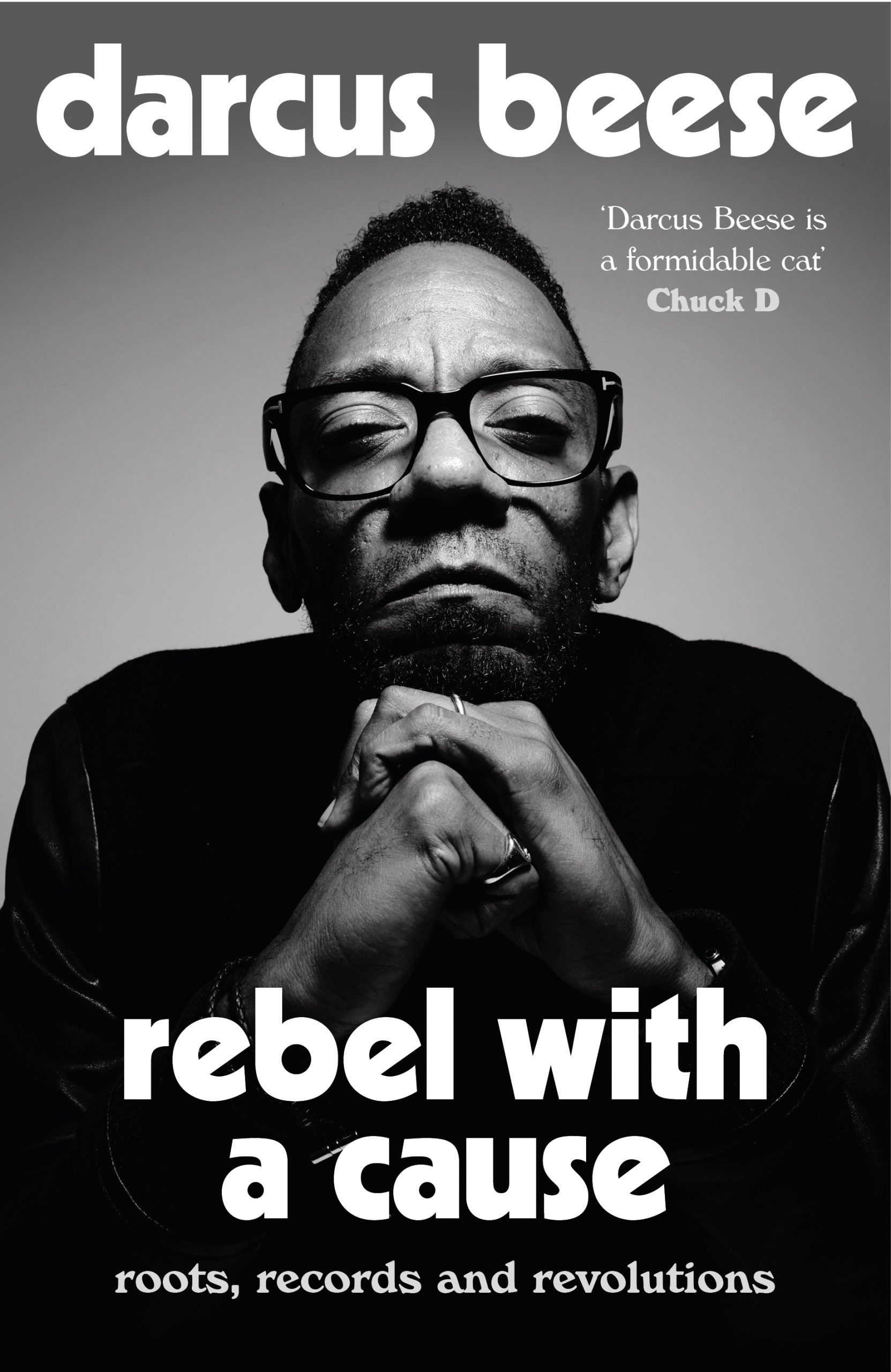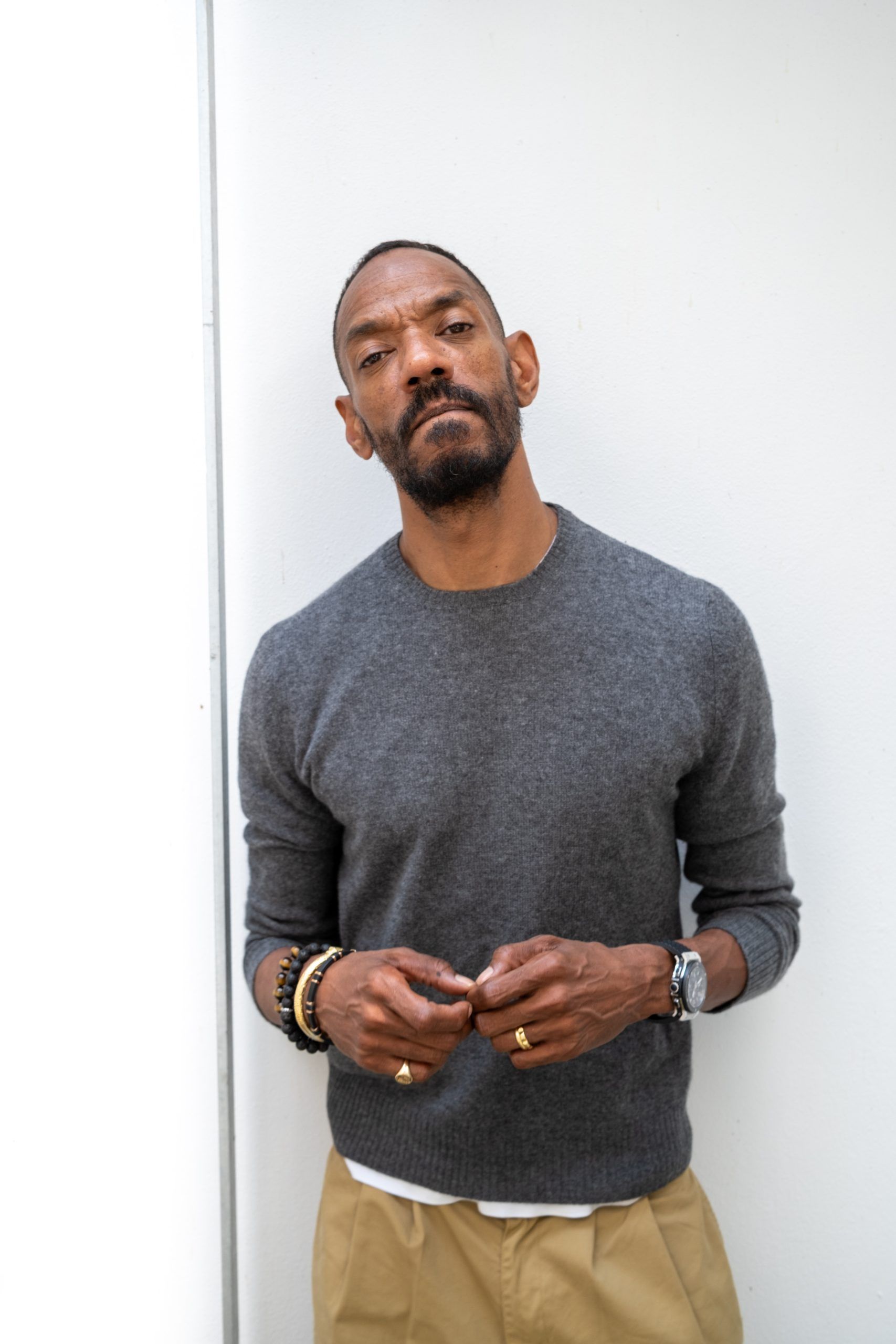In a world where extraordinary achievements often overshadow the personal stories behind them, Rebel Without A Cause by Darcus Beese stands out as a profound tribute to the journey of an individual whose impact extends far beyond the conventional measures of success. This book offers a compelling exploration of resilience, ambition, and the relentless pursuit of a vision, delving into a narrative that rises above the ordinary and ventures into the extraordinary.
Beese’s work is more than just a recounting of professional milestones; it is a rich tapestry of introspection and societal relevance. Through a multifaceted lens, he reveals the trials and triumphs of a remarkable career, illuminating the deeper, often unspoken lessons that have shaped his path through and through. The book invites readers to venture on a journey of reflection, challenging conventional notions of success and legacy.
Rebel Without A Cause presents an inspiring blueprint for how personal determination and authenticity can redefine one’s trajectory. It offers a transformative perspective on what it truly means to leave an enduring impact on the world. This narrative is not merely a chronicle of achievements but an ode to the power of forging one’s own path with conviction and integrity.
By blending personal insights with broader societal observations, Beese provides a thought-provoking examination of success and legacy. His narrative serves as an invaluable resource for anyone seeking to understand the intersection of ambition, authenticity and influence, and inspires readers to reimagine their own potential for leaving a meaningful mark on the world.
In conversation with 1883 Magazine, Darcus Beese sits down to discuss his book Rebel Without A Cause, his career, and more.
Darcus, your career at Island Records started as a tea boy in 1993. Could you share with me some pivotal moments or decisions that propelled you from that starting point to eventually becoming the CEO and president of Island Records, UK and USA?
That’s an interesting question. When I entered the music industry, it was quite homogeneous—predominantly white, male, and upper-middle to upper-class. I quickly realised that networking was far more crucial than simply sending out CVs. Building a solid network within the music industry community became my priority.
I believe if someone is seeking an opinion about you, and they don’t know you personally but are relying on someone else’s view, it’s vital that the person they ask holds you in high regard. You want to ensure that when your name comes up, it’s met with praise rather than criticism. While you can’t control timing, you can prepare yourself. When the right opportunity arises and everything aligns, having a strong network can increase the chances that your name will be favourably mentioned.
So, the key decision was always to place myself in situations where opportunities could arise, even if they didn’t always pan out.
By being in the right places and connecting with the right people, I positioned myself so that, when the time came, there would be a good chance that my name would be positively recognised.
I somewhere relate to that because whenever I’m working, my motto is to always network, network, network, because that is what’s going to get me what I want rather than merely sending my CV around. So I completely agree with that bit. Moving on, you famously signed and developed numerous iconic artists like Amy Winehouse, Jessie J and Florence & the Machine. What qualities or instincts did you rely on when identifying potential superstars and how did you foster their growth?
I was fortunate to work at Art Island Records, a label with a rich history and legacy that was evident in its catalogue. The focus there was always on the artist and their art. If you followed Art Island Records’ approach, investing in the artist and their vision was key.
A crucial factor I looked for was whether the artist possessed a strong sense of personality—someone so driven that even if no one was watching, they’d still be pursuing their craft with passion. It’s essential that an artist is as excited about their work as you are about them; this innate force of personality is often a hallmark of success, whether in business or the arts. The qualities I valued included resilience, relentlessness, and a deep passion to succeed. While you might not always be right in your judgment, seeking out these traits can often lead to finding those who have the potential to make a significant impact.

I truly agree. There is one thing that my mother has always told me, which is “You are you when no one’s watching you”.
I’m using that one; tell your mother I’m using that one.
Absolutely, absolutely. So I think that is definitely what one needs when they are passionate about something and they want to succeed, be who they are authentically irrespective of who’s watching or who’s not watching.
Authenticity is crucial, but it’s more than just a surface-level quality. Many people believe they are being authentic, but truly dialling into that unique “secret sauce” sets individuals apart. People often ask me how to become a leader or run a company, and the reality is that not everyone is suited for those roles. However, if you discover your own path to success, you might surprise yourself. Achieving this requires going beyond what the majority do; it means embracing what only 1% are willing to do. It’s a challenging standard to meet, but it’s often what differentiates those who achieve remarkable success from the rest.
Your memoir, Rebel Without A Cause chronicles your remarkable journey to being the music industry leader you are today. What inspired you to share your story now, and what do you hope readers will take away from it, especially aspiring individuals in the music industry?
When I returned from America, one of the first emails I received was an offer to write my autobiography. Initially, I dismissed the idea, thinking my ego didn’t need such validation. My father, a civil rights leader, broadcaster, and writer, had published his own political biography, and my great-uncle C.L.R. James was a renowned novelist. I felt I was not in their league, and I questioned whether my story was compelling enough. Moreover, I struggle with ADHD, which makes writing a book particularly challenging for me; it can take me an hour just to read a single page. However, after discussing the idea with my collaborator, David Matthews, I began to see the value in telling my story. As a Black man who became the first Black executive to lead a major record label in the UK and one of only three Black CEOs in the US music industry, my journey was unique.
The story also intertwined with my late ADHD diagnosis, adding another layer to the narrative. I realised that my journey—from the streets of West London to leading a billion-dollar company in the US—was not just about working in the music industry. It was about overcoming challenges, forming key relationships, experiencing successes and failures, and ultimately navigating the complexities of leadership and success. So, while I initially doubted the need for such a book, it became clear that my story—filled with personal anecdotes and professional milestones—could offer valuable insights. It underscores a broader message: be careful what you wish for, as the pursuit of success and leadership comes with its own set of costs and challenges.
55 is very young; 50 is the new 30.
Your parents were influential activists. How did that activism shape your worldview and influence the themes discussed in Rebel Without A Cause?
Growing up in the seventies and eighties, my upbringing was deeply shaped by my parents’ activism and personal histories. My mother, who was of mixed race, was placed in a children’s home as a baby due to her heritage—her background being a mix of an African American GI and a local white woman from Bristol. My father, who came from Trinidad, was studying law when they met. They found each other through their shared commitment to activism.
While my mother was pregnant with me, she was involved in the famous Mangrove Nine trial, a high-profile case where my parents, both members of the Black Panthers, were arrested during a demonstration. They faced serious charges like incitement and affray but were ultimately found not guilty in a landmark trial at the Old Bailey. This trial highlighted systemic corruption and racism within the legal and police systems.
Growing up in this environment, I was immersed in the struggle for civil rights and equality. My parents fought for the future of our generation, striving for our rights and equal opportunities in society. For me, the responsibility was clear: instead of merely shouting and demanding change, my form of activism became about achieving success in my own right. My goal was to become a CEO, specifically the first Black CEO of Art Island Records in America. By doing so, I hoped to honour my parents’ fight and show that their efforts had made a real difference.
In looking back over your career, what would you consider the most significant highlight or achievement, and conversely, one of the most challenging moments you faced and how you overcame it?
There are many moments I could highlight, but what stands out is how my journey evolved. Whether it was my first promotion, being unexpectedly tapped on the shoulder to become co-president, or eventually becoming sole president, these experiences were not driven by a desire for titles or financial rewards. Instead, my focus was always on success with my team and my artists. My passion for the work and dedication to the craft was what truly mattered to me. Promotion and pay raises came as natural consequences of my commitment and performance. I never aimed for leadership or titles; my primary goal was to avoid failure and strive for excellence. If I couldn’t be exceptional, I aimed to be really good. If I couldn’t be really good, I wanted to be good, and if I couldn’t be good, then I aimed to be okay. If I wasn’t even okay, I felt I didn’t deserve to be there.
I remember attending a course at Universal called ‘Action Learning’, which focused on handling on-the-job situations and managing in various directions. One particular exercise involved an obstacle course where you had to climb to the top of a wobbly telegraph pole and leap onto a trapeze swing. Although you were secured with a harness, it was a trust exercise designed to push you outside your comfort zone. This experience taught me the importance of stretching beyond my limits and embracing discomfort. Throughout my career, I’ve taken this lesson to heart, consistently putting myself in challenging situations. Whether it was public speaking, leading from the front, or making tough decisions, I learned that success often comes from navigating through discomfort and stress. This mindset of resilience and pushing boundaries has been a driving force throughout my career.
Beyond your roles at major labels, your entrepreneurial ventures are a focus of your book. Could you elaborate on one such venture highlighted and its significance to your professional journey?
Music has always been the soundtrack to our lives, shaping our experiences and memories, whether through films or everyday moments. Despite the proliferation of content and the shift in how we consume media, music remains profoundly significant. We’re at a pivotal moment in the music industry, where the focus is shifting from merely reflecting on the past to envisioning the future. While history and catalogues are crucial—they represent our past and influence our future—the real challenge is adapting to the evolving landscape. As our attention is scattered across countless platforms, the task is to connect with audiences who are fragmented across different mediums.
Technology has always propelled human progress, for better or worse. AI, for instance, might seem daunting, but like all new technologies, it will become clearer and regulated over time, just as previous advancements have. The entrepreneurial challenge lies in redefining what a music company looks like in the future. Historically, the music industry was about discovering new talent and preserving artist legacies. The excitement came from breaking new acts and introducing them globally. Now, the focus is on creating a new model that goes beyond the traditional record company format. The goal is to innovate and serve the evolving needs of the music industry in this new era.
I think that was a very nuanced answer. Coming back to activism, given your background in activism, how does Rebel Without A Cause address the intersection of music, social impact and responsibility, particularly in today’s cultural and political climate?
When I reached a high position in the music industry, with the power to sign artists and lead a record company, I saw it as an opportunity to use that influence thoughtfully. My approach to hiring and managing people was deeply influenced by my own experiences growing up and working my way up in the business. I led with empathy and an activist mindset, ensuring that the trajectory for women and people of colour within my business was more supportive than it might have been under different leadership. My roster was designed not just to reflect the music industry but also to represent music culture in all its diversity.
For instance, my roster included a wide range of artists, from Jessie J and Amy Winehouse to Mumford & Sons and George the Poet, who brought a political and cultural perspective to his work. I recall a conversation with Hozier during our discussions to sign him. He noticed a poster of George the Poet in my office and asked about him. When I explained that George was a poet whose work was political and cultural rather than commercially focused, Hozier questioned why I would sign an artist who might not sell many records. My response was that, while my job was indeed to sell records, it was also crucial to provide a platform for artists who have something important to say.
Hozier was impressed by this perspective and it played a significant role in his decision to sign with Island Records. For me, it was essential that my leadership and the artists I worked with reflected a commitment to more than just commercial success. It was about championing diversity, culture, and activism, even as I recognised the importance of achieving success in the music business.
It’s not just talent, there’s also diversity and so much that one can bring to the table beyond just musical talent. Now, as the EVP at Warner Music UK and the founder of your own label, what are your goals for this new chapter and what legacy do you hope to leave behind in the music industry?
As of June 30th, I’m transitioning from my role at Warner Music UK, so you’re getting an exclusive insight into my next steps. When I returned to the UK after my time in America, the music landscape had shifted dramatically. I hadn’t been active in the UK market for a few years, so re-engaging with it revealed how much it had changed.
Joining Warner Music was a strategic decision to understand and navigate these changes. My experience helped me see that the industry was in a state of flux, and breaking UK artists internationally was becoming increasingly challenging. The role of traditional record companies was diminishing as artists and fans connected directly, bypassing the middleman.
My goal now is to find a new venture that’s exciting and suited to the current landscape. The focus will be on understanding how the industry and artist-fan connections are evolving and adapting to these changes. It’s not so much about leaving a legacy but about redefining my role and responsibility in this new context. With all the knowledge and experience I’ve accumulated, I’m looking to evolve my brand and approach to meet the demands of today’s music industry. It’s about creating something that resonates with the current and future state of the industry, leveraging my experience to make a meaningful impact in this new era.
Throughout your career, who were some of your mentors or figures that significantly influenced your approach to leadership and talent development?
When I think about my parents, it’s more than just a cliché. Their influence is deeply ingrained in me. While I’ve never had formal mentors, I’ve always been open to taking advice from various people and picking up valuable lessons from those who impressed me with their character. I’ve learned to be a magpie, collecting useful bits from here and there.
Recently, however, I’ve been working with a mentor named Coy, a sharp and humorous Vietnamese gentleman from the UK. He’s been instrumental in challenging me and placing me in new, stimulating conversations. We’re the same age and share similar tastes in music, which makes our discussions even more engaging. As I look toward the future and think about what legacy I want to leave behind, it’s clear that it’s not just about signing artists or having hits. It’s about creating something more substantial and impactful. The journey now is about exploring these new dimensions and figuring out how to shape a legacy that goes beyond the conventional markers of success.
As an A&R executive, how do you strike a balance between nurturing artistic creativity and achieving commercial success, especially in an industry increasingly driven by metrics and streaming numbers?
Absolutely. Balancing artistic creativity with commercial success is like managing a diversified portfolio. Just as you wouldn’t invest all your money in one stock, you shouldn’t focus solely on one aspect of an artist’s career.
In the music industry, this means nurturing some artists through a slow-cooked process, building a community and fostering deep connections over time. This approach often leads to sustainable, long-term success. On the other hand, having some artists who can deliver quick hits—like microwave-ready tracks—can provide immediate commercial gains and keep the business vibrant and dynamic. The key is to blend these strategies effectively. The slow-cooked projects might not yield instant results, but they build a solid foundation and genuine engagement. Meanwhile, the quick hits can drive volume and create buzz.
Taking strategic risks or ‘shots’ is also crucial. This involves being bold and exploring uncharted areas—whether that’s signing an unconventional artist or experimenting with new trends. These risks might not always pay off, but they can lead to significant rewards and keep your roster and business fresh and exciting.
Considering the release of Rebel Without A Cause, what impact do you hope your memoir will have on its readers and how do you envision it contributing to ongoing conversations within the music industry and beyond?
I didn’t want the book to be merely a recount of my success in the music industry or a collection of sensational stories. I wasn’t aiming to debunk myths or validate gossip. What mattered to me was sharing my journey, because there’s a lack of reference material for people from my generation. When I was young, I didn’t have a book or figure that could inspire me or show me a path. I wanted my book to be that reference point—a resource for young people, parents looking for role models for their children, and for understanding UK Black history over the decades.
For years, I struggled with imposter syndrome, believing I was just fortunate rather than talented, and I never sought recognition or leadership roles. I didn’t think someone like me would get the chance to lead a company. Now, I hope that seeing my story can inspire others and show them that with hard work, they can achieve their dreams. I’m proud to think that my success, whether in the music industry or beyond, could serve as a transferable example. What I’m most proud of is leaving a legacy through the book, which represents my journey and contributions. While the work of the artists I signed and the people I’ve promoted is their own, this book is my way of marking my place and passing on a sense of presence and possibility.
Rebel Without A Cause is out now. Follow Darcus Beese @darcusb.
Interview Ishika Paruthi









